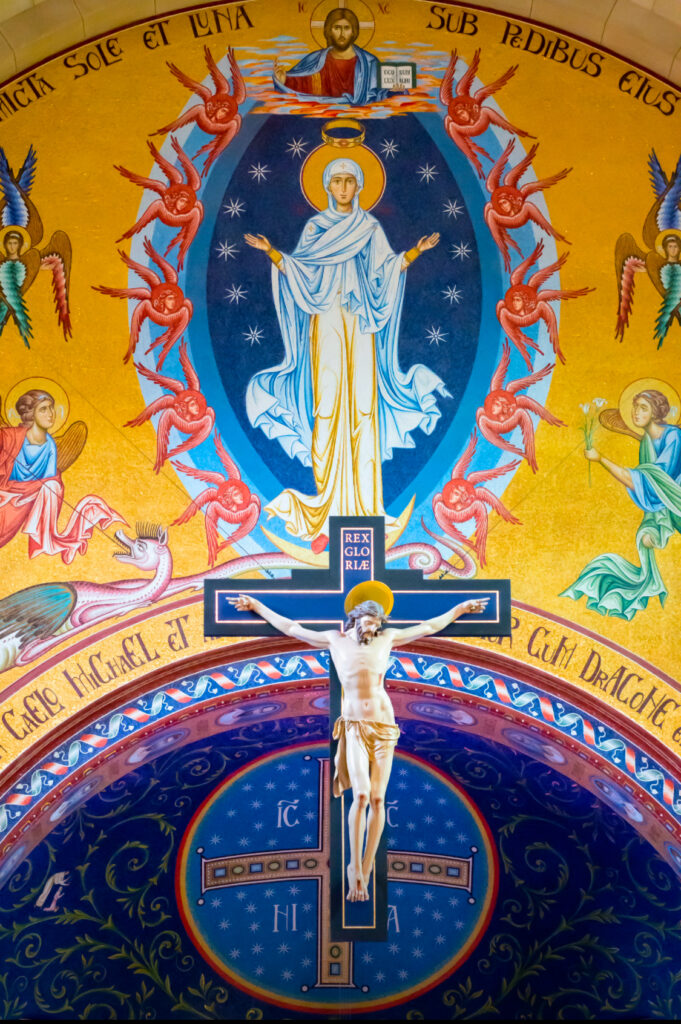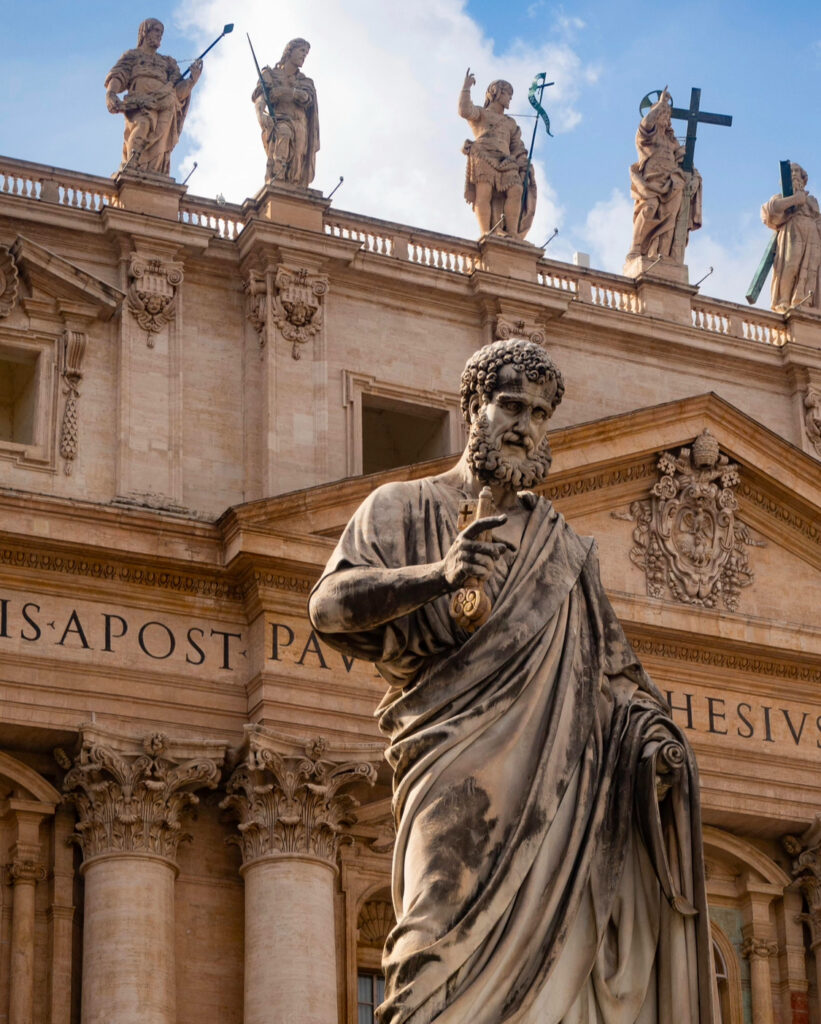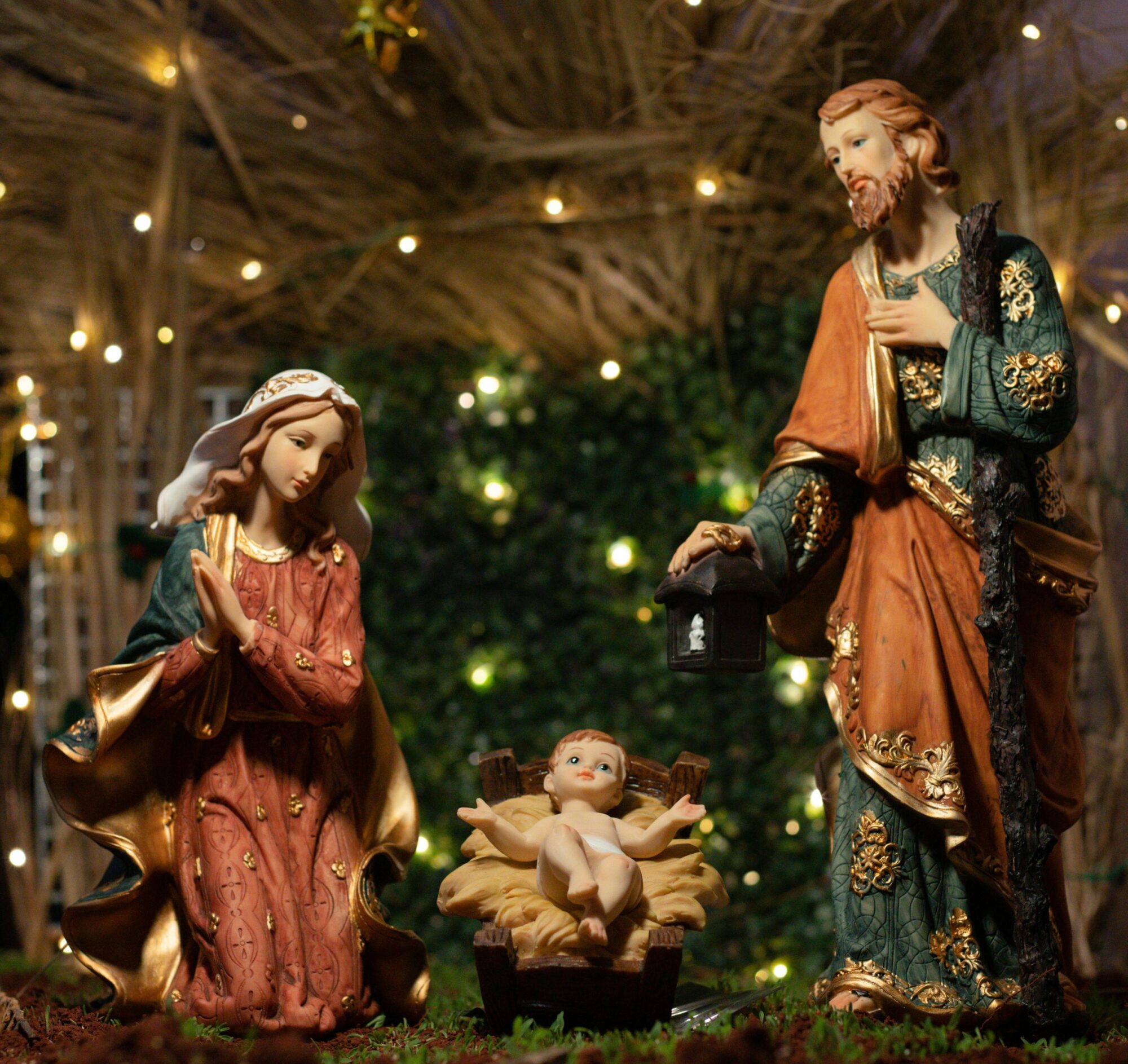It’s Christmas time, and during this season it’s easy to get caught up in things that are not related to Christ. We might focus on the seasonal sales that are going on at our favorite stores so that we’re ready to get gifts for our friends and family. Maybe we’re thinking about our travel plans. Or perhaps, on how we are going to indulge in our favorite foods on Christmas day.
This may be great and all, but we should always remember the reason for the season. Different languages have different names for Christmas. In English, Christmas means “mass on Christ’s day.” Whereas in Latin-based languages such as Spanish or Italian, Jesus’s birthday is called Navidad or Natale, which means Nativity or birth, respectively. Each name pays homage to the divine humility of our God, who chooses to present himself as bread in the mass and as a defenseless child born in a manger.
It’s not coincidental that days in December are the darkest. Jesus, who is the light of the world (John 8:12), is born on December 25th, and the days continue to steadily become brighter as the sun is in the sky for longer durations of time.

The start of December also marks the beginning of Advent. This is a season within the church that emphasizes the preparation for Christ’s arrival on earth. The church directs our attention in two ways. First, we should prepare ourselves for Christ’s return at the end of time. The church effectively calls us to a state of vigilance. Echoing what St. Paul says to the Thessalonians, “For you yourselves know very well that the day of the Lord will come like a thief at night.” The second is to celebrate Jesus’s birthday. In the Nativity story, we see God’s plan for salvation through the people that participate in the celebration. The three Magi represent God’s universal plan for salvation since they are commonly thought to be non-Jewish nobles from gentile lands. The shepherds reflect the average person, who Christ came here to represent.
So, how should we prepare to welcome our Lord? How do we keep him at the center this Christmas?
Well, let’s consider how easy it is to get lost in the day-to-day routine when we forget our identities in Christ. When that happens, it’s easy to lose a sense of who we are as children of God. As it states in Genesis, God made us in his “image and likeness.” But what does this mean? When we want to make sense of things in the Bible, it’s important to look at how certain words or phrases are used across scripture. For example, later in Genesis 5:3, scripture states how Seth was made in his father Adam’s image and likeness. Therefore, our identities are rooted in our heavenly father. When we continuously welcome our brother and our Lord Jesus into our lives, we honor God more and we become more Christ-like. God has a better plan for us than we can ever imagine, but we won’t know what that plan is unless we get to know God. Here are some examples of biblical figures who encountered their identities through God.
David

Before David was king, he was simply a young boy, and that’s what many saw him as. When David heard about Goliath, he went to the frontlines. His older brother scolded him for being there, as he saw David as a simple shepherd. When David faced Goliath, Goliath mocked him, for all he saw was a boy. But the identity that God bestowed upon David was for him to be king. David himself never doubted God’s plan for him, which is how he knew that he would defeat Goliath: “Today the LORD shall deliver you into my hand; I will strike you down and cut off your head. This very day I will feed your dead body and the dead bodies of the Philistine army to the birds of the air and the beasts of the field; thus the whole land shall learn that Israel has a God” (1 Samuel 17:46). When we welcome the identities that God has for us, we are not who others think we are. We are like David and partake in our roles in the kingdom of God.
Mary

Mary was also someone who initially saw herself as a common person. When the angel Gabriel first appeared to her, she was troubled when he told her, “Hail Mary, full of grace, the Lord is with you.” Despite the trouble these words brought her, God had favor in her and identified her. So much favor that he desired her to be the mother of his son (Luke 1:29-31). Mary likely did not initially see herself as any differently than any other woman in Nazareth. But when you look back to Genesis, Mary and Jesus are foretold in what the church calls the protoevangelium (Genesis 3:15). God had a plan for her since the beginning. When Gabriel announces Jesus birth to Mary in Luke 1:32, she surely knew the significance of what her role now meant in salvation history, which was to be the queen mother of Jesus and his kingdom (Revelations 12:1–5).
Peter

St. Peter is another who transforms when he welcomes Jesus into his life. Initially, when Peter meets Jesus, he is unaware of who he is and simply follows Jesus’ request to go out and fish with him. A doubtful Peter takes Jesus out to sea with him and begins casting his net. To Peter’s surprise, the nets are not only filled; they begin to overflow to the point that he fears that the boat might capsize. They are able to make it to shore, and Peter emotionally exclaims, ‘Depart from me, for I am a sinful man, O Lord’ (Luke 5:1-11). Sometimes we are like Peter in this part of his story. We belittle ourselves due to our flaws. We fall into the lie that the devil gives us to lose hope in our futures. But Jesus knows Peter’s full potential. Consequently, he calls him to be an apostle, tells him that he will lead his church, and gives him the keys to the kingdom of heaven (Luke 5:10, Mt 16:18-19).
If we want to know God’s plan for our lives, we have to strive to encounter him daily. We’re all different, so we can engage him in whatever way speaks to us best. For some, that will be daily prayer. Jesus taught us how to pray by saying the Our Father. Us Catholics also have the Holy Rosary. This tool leads us to meditate on several aspects of Jesus’s life. Additionally, attending Mass more frequently is a way to participate in the mystery of salvation. These are only some examples of ways you can continually welcome Jesus into your life on a daily basis, though it may be best to pray and ask God how he wishes to encounter you. With all these things in mind, one thing is certain. When we welcome Jesus daily in our lives, we are preparing for his return.
